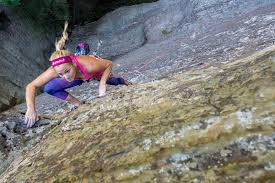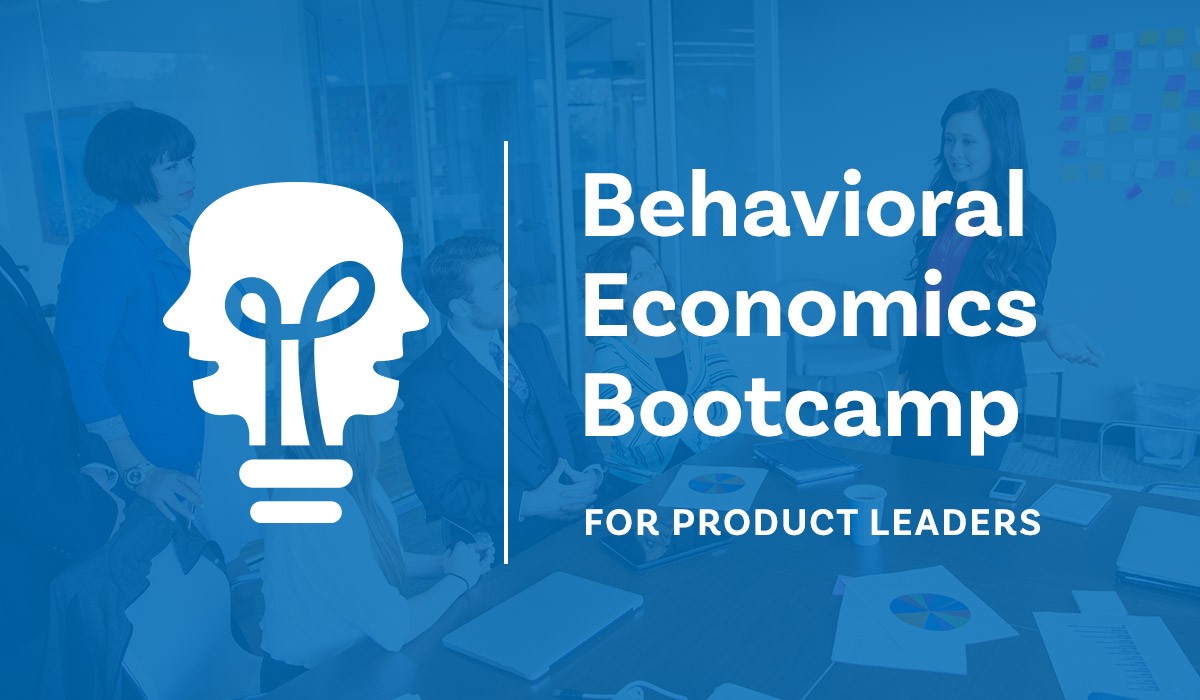Check out Irrational Labs? self-paced, online Behavioral Economics Bootcamp, and learn about customer psychology, the science of decisionmaking, and proven frameworks to changing behavior (for good!).
Behavioral economics has hit buzzword status.
There are 196 government teams across the world designed with the purpose of using behavioral insights to influence policy. The 2017 Nobel Prize in Economic Sciences was given to a behavioral economist, Richard Thaler. Dan Ariely publishes a book a year (sometimes more) and all have taken off. But the most powerful nod to the field?s rise in popular awareness and credibility? Debunking behavioral economics has become a sport. You cannot be on the world stage if no one is critiquing you.
There is one problem.
How does someone get into this growing field? This post attempts to outline the pathways for someone (without a Ph.D.) to gain the training and skills needed to practice behavioral science and find a job that allows you to use these skills on a daily basis.
First things first: there is no set path (for someone without a Ph.D.)
As of right now, without a Ph.D., there isn?t one route to become a behavioral scientist. You have to make the route yourself. In climbing, they call this a first ascent. For the next couple years, you?re making the first ascent into behavioral science. Your path will always be different from someone else and you have to chart it.
 You have to be ready to make a first ascent
You have to be ready to make a first ascent
So, should I just get a Ph.D.?
A Ph.D. should only be explored if you?re committed to staying in academia after your Ph.D. While many students do get an industry job after completing their Ph.D., this is typically frowned upon by the academic institution. On top of this, a Ph.D. is not great training for the business skills you?ll need on the job. On the job, you?ll need to make decisions with less than adequate information and data ? a skill you will not practice in your Ph.D program. If you want to use this advanced degree to get a job in Industry, you?re taking a really long approach.
Four ?Non-Ph.D.? paths for skill development
Each of these ?non Ph.D.? paths shares the end goal of finding a job, or designing your own job, that allows you to practice behavioral science on a daily basis. To do this, one needs the entry-level practical and tangible experience doing end-to-end research, applying behavioral science principles and most of all, problem-solving like a behavioral scientist.
1) Find a professor and ask to help them
Professors have pet research projects. They have more writing to do than is possible. You can offer your services. Professors Dan Ariely, Adam Grant, Ayelet Gneezy and Eli Finkel have all at one point adopted an eager person to assist them with their projects. Taking this path means you don?t get a formal training, but you do get your hands dirty. And, you get to learn from the best, truly seeing the world from their lens.
The key to succeeding in this path is to offer more than you take.
It?s not about getting ?free training,? it?s about offering real help. From the author?s experience, you should ask what they need, and if it matches with your skills, offer it for free. Do not do more than 10 hours a week, thus keeping your current job in place. Ask to attend a class, sit in on lab studies and lab meetings or copy edit papers to get more exposure.
2) Use your current job to train yourself
Behavioral science is a science that most traditional organizational roles could stand to incorporate more. Ask your manager to sponsor you on a side project that investigates a behaviorally interesting research question, analyzes experimental data or prototypes solutions using BE principles. If your manager isn?t keen on sponsoring, try approaching another manager in your company that is more exposed to behavioral economics.
Action: Check out these reading materials our team at Irrational Labs put together. Enroll in self-guided training courses, like ones on Acumen or Coursera.
3) Enroll in a Masters program
Good news. There is an alternative to a Ph.D. Two reputable master programs have hit the scene recently that seek to fill the educational gap. Check out Penn?s and London?s one-year programs. Harvard Kennedy School also has a track for behavioral insights if your aim is policy.
A full list of MS and Ph.D. programs is on Behavioraleconomics.com. This path is likely the most sure-fire way to make headway into the field. That said, ensure that you prioritize project based outputs (e.g., partner with companies to run experiments or run field tests) during the program to show your potential employers you?ve applied the lessons to real problems.
4) Formalize training with a part-time bootcamp program
It?s become painfully clear that the amount of desire to get into the field outpaces the training opportunities available. In an effort to increase the number of people using behavioral science methods to build products (for good), Irrational Labs has an online 8-week bootcamp course. This program is specifically targeted to marketers, designers and product managers who want to learn how to change the behavior for good.
 bebootcamp.com
bebootcamp.com
Apply here to start learning.
Skills you need
In all four paths, you?ll want to consider what skills to acquire. Not every job will require every skill. For example, depending on the size of the company you may do experimental design and someone else does the data analysis. However, on the whole, these are all good to develop:
Behavioral Science command:
- Knowledge of judgment and decision making research. Start here for a self-guided tour.
- Ability to assess environments and apply insights to develop a hypothesis for testing
Influence:
- Experience doing client management, consulting or product management
Research/Experimental Design:
- Experience running multivariate RCTs (e..g, randomization, statistical power)
- Experience writing and deploying quantitative survey studies (e.g., Mturk and Qualtrics)
- Experience with industry testing tools such as Optimizely, Google Analytics, Mixpanel, etc
Data Analytics:
- Ability to run descriptive and inferential statistics
- Command of R or Python (R is preferred by academics and Python by industry)
- Ability to query in SQL
Want more? Here is another article on BE specific skills from the behavioralscientist.org.
I?m now trained. Who will hire me?
Sadly HR departments are not yet caught onto the fact that behavioral science is here. There are few roles titled: ?behavioral scientist.? To be fair, it is not obvious how companies should integrate a behavioral scientist into the organizational structure. Who would this person report to ? research, marketing, product? While new roles can be created in organizations ? as evidenced by the role of growth marketers within tech companies around 2016 ? it doesn?t seem to happening for behavioral scientists yet.
Here are some organizations who may be open to receiving your resume:
BE Consulting Companies
These include Irrational Labs, BEWorks, Ideas42, FehrAdvice, and Kenya?s Busara team. These companies do consulting and research, for both for-profit and non-profit companies.
Government agencies
The UK?s Behavioral Insights Team (BIT) is best in class at operationalizing insights to save the government money and increase well-being. Most other governments (save the U.S. now) have a behavioral insights team. On top of this, other unifying bodies are getting into the action. World Bank announced a focus on behavioral science in 2016 and has a growing team. The upside of a government focus is that your reach will be massive, but the projects will be long and you?ll have to endure lots of bureaucracy.
Companies with internal behavioral science groups
A few companies are leading the charge to incorporate BE into their culture and have staffed a team to work cross-functionally across the organization. As of mid-2018, these companies include Google, Walmart, Uber, and Maritz.
Companies that have displayed behavioral science enthusiasm or have hired a Behavioral Scientist in the past
Some companies ? Airbnb, Facebook, Intuit and Amazon ? have broken the seal and brought on one behavioral scientist. Other companies have internal champions for behavioral science and could be open to expanding their expertise. These include companies like One Medical, Prudential, Lilly, Cuna Mutual, American Family, AARP, SunTrust, and Netflix.
Companies that are solving a classic behavioral science problem
These teams are looking to change behavior around health, wealth or happiness may be open to making traditional roles more behaviorally focused. You could consider approaching companies like Omada Health, FitBit, Clarity Money, or BigHealth and pitching yourself as a behaviorally informed [marketer/designer/data scientist/PM]. See below for examples of how you could take a traditional role and start to define your daily activities to include a behavioral science lens.
- A Behavioral Marketer who conducts controlled email and landing page experiments that test psychological theories.
- A Behavioral Designer who understands that their design aesthetic is only as powerful as the behavior that they can shift. They look at the small details, care about every click and decision that the user must make.
- A Behavioral Researcher who uses quantitative methods as well as qualitative tools to drive insights.
- A Behavioral Data Scientist who moves beyond the numbers and takes an active role to help investigate why the companies are seeing these numbers and this behavior. They ask great questions from the data that highlight key insights.
- A Behavioral PM who promotes quantitative research, behaviorally-informed design and features that integrate behavioral science principles (read more here)
Good luck on your first ascent.
Behavioral science is more than memorizing a list of biases. It is much more a process by which you can evaluate, understand and design for human behavior. Like any craft, it takes time to learn and practice ? but we think it?s worth the investment. Of course, we?re biased.
Kristen is the founder of Irrational Labs, an SF behavioral science and product design shop and a founder of Common Cents, a financial decision making lab out of Duke University. She helps startups and tech companies apply behavioral science to help people become happier, healthier and wealthier.
? P.S. Want a discount for our 8-week online bootcamp? Apply and during check out use the code MEDIUMFRIEND to get $50 off.

